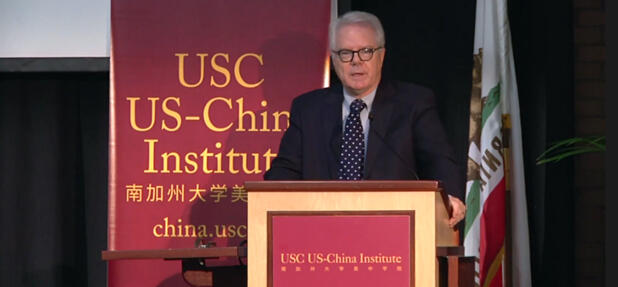About the Speaker
David Lampton is Hyman Professor and Director of China Studies at the Johns Hopkins School of Advanced International Studies. Former president of the National Committee on United States-China Relations and Dean of Faculty at SAIS, he is the author of The Three Faces of Chinese Power: Might, Money, and Minds. A Stanford University graduate, Lampton has also received an honorary doctorate from the Russian Academy of Sciences' Institute of Far Eastern Studies. He is an Honorary Senior Fellow of the American Studies Institute of the Chinese Academy of Social Sciences. He won the Robert Scalapino Prize in 2010 and is a Gilman Scholar at Johns Hopkins. His newest book, Following the Leader: Ruling China, from Deng Xiaoping to Xi Jinping, will be published by UC Press in January 2014.
This video is also available on the USCI YouTube Channel.
Through Tinted Lenses? How Chinese and Americans See Each Other
What do Americans and Chinese "know" about each other and how do they know it? What images do they have of each other's society and state? Where do these images come from? Why do some endure and others change? How do images vary with age and other factors? How do these perceptions affect the decisions and actions of governments, businesses, civic groups, and individuals?
On November 1-2, 2013, leading academics gathered with pollsters, journalists, diplomats, and entertainment industry practitioners to explore these questions and questions and others at a conference hosted by the USC U.S.-China Institute.
Polls suggest that a slight majority of Americans believe that the values of Chinese and Americans are so different that cooperation to address international problems is impossible. Most Chinese feel the U.S. is working to constrain China's continued rise. Americans and Chinese have increasingly negative impressions of each other's countries. Yet, we are visiting each other's countries more than ever before, becoming ever more intertwined, and are working cooperatively in many different ways to address pressing social, economic, and environmental issues. At the conference we examined how these exchanges affect perceptions along with the even more powerful role played by new and old media, popular entertainment, and political discourse.




